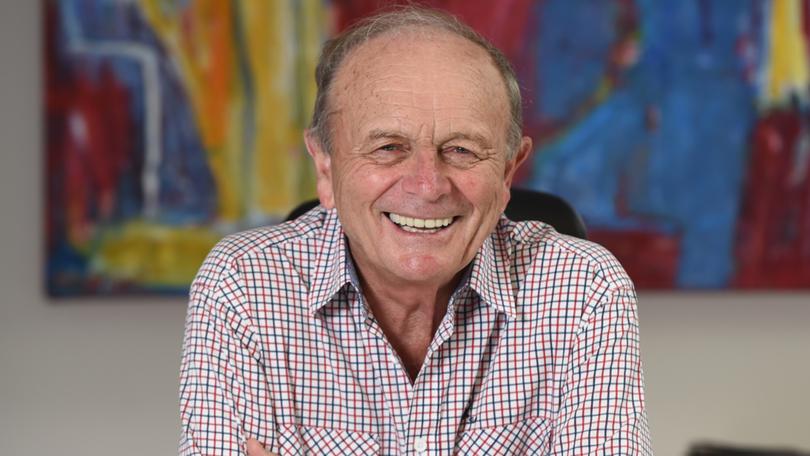‘No f...ing way’: Why Harvey Norman’s Gerry Harvey says CEOs are so frustrated
Harvey Norman chair Gerry Harvey reckons there has never been a worse time to be a CEO of a public company thanks to excessive government regulation.

Harvey Norman chair Gerry Harvey reckons there has never been a worse time to be the chief executive of a public company — and he’s laid the blame at excessive government regulation.
Mr Harvey on Wednesday said it was “mad” how company bosses today were plagued by regulation that forced them to “spend all their time dealing with stuff that they’re not good at, and two, not doing what they are good at”.
“It’s never been worse (time to be a CEO). You talk to anyone that’s been a CEO for a few years of a public company and say ‘would you like to go back’, (they’ll say) ‘No f...ing way’,” he told The Nightly after the company’s annual general meeting.
Sign up to The Nightly's newsletters.
Get the first look at the digital newspaper, curated daily stories and breaking headlines delivered to your inbox.
By continuing you agree to our Terms and Privacy Policy.“If you took the last 100 CEOs that left a public company, 98 of them would never go back so that’s telling you that people that get to CEO position in a public company are very frustrated.
“They’re frustrated because there’s too much regulation, there are too many rules, there’s too many hurdles to jump over and they never want to go back there again.”
He added: “It might be better with no government . . . just get rid of them and we’ll just run ourselves without a government, we might do better.”
The billionaire businessman also warned the country was heading into a “big black hole” under the weight of swelling government debt.
He added high government spending was stoking inflation, making it impossible for the Reserve Bank to cut interest rates.
“If you look across all the different areas that the government has to support . . . (they) are all increasing and increasing at rapid rate of knots,” Mr Harvey said, pointing to health, education and the National Disability Insurance Scheme among examples.
“You’ve got a situation where the government collects $10 for the year but they spend $15. That can’t keep going and there’s no way that that’s going to stop.
“Even if you did get inflation down, you’ve still got the debt through the roof.”
Harvey Norman revealed total sales in the four months to the end of October were up 1.7 per cent. Same-store sales growth was up 1.4 per cent. Mr Harvey described the results as “OK”.
“We think November, December will be a bit better,” he said.
“There’s Black Friday . . . then we’ve got Christmas trading, then we’ve got Boxing Day so the retail industry is really powering along with sales, which is maybe taking a bit of business away from some other sectors.”
Harvey Norman chief executive Katie Page told the AGM its large-format home and lifestyle stores thrived in communities with supportive economies, strategic regional planning, as well as efficient transport and logistics systems.
“Rather than replacing physical shopping, online retailing complements our stores, providing customers the flexibility to browse, order, and pick up where and when they choose,” she said.
Citi analyst Adrian Lemme said the trading update pointed to “steady growth” in Harvey Norman’s flagship Australian operations.
“While we are cautious on the comparison given the different trading period, it does appear Harvey Norman Australia has under-performed The Good Guys,” he said.
“However, we note November is not included in the update period and continue to expect that more consumers are holding out for the all-important Black Friday sales.”
Higher cost of doing business remains a headache for Mr Harvey, particularly electricity bills and wages. More businesses are also going bust, he says.
“But overall, the economy is still fairly strong.”

